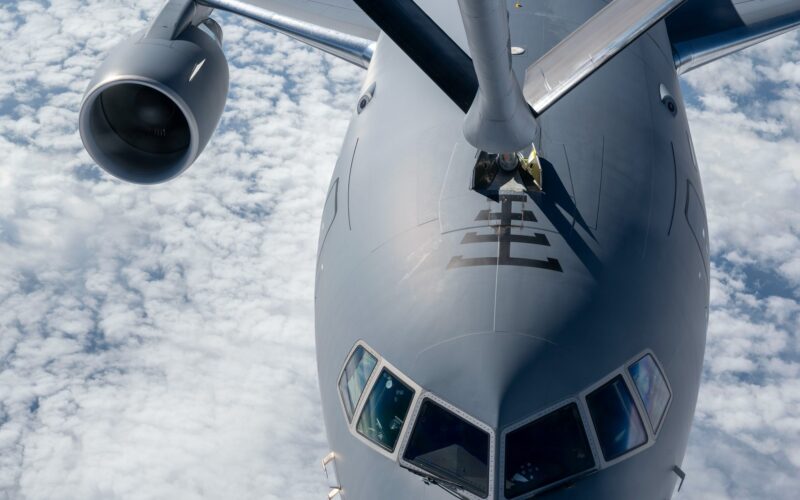The United States Air Force 22nd Air Refueling Wing has successfully completed the world’s first round-the-world nonstop flight using a KC-46A Pegasus, its newest tanker aircraft.
The aircraft flew westbound in a 45-hour flight that began on June 29 and finished on July 1, 2024. The KC-46A Pegasus aircraft departed from McConnell Air Force Base located in Wichita, Kansas, US, and returned to the same location for landing.
Captain Cody Donahue, who has been planning the mission known as Project Magellan, emphasized that the reemergence of a high-intensity conflict threat creates a need for crews to be able to operate for longer durations than they have in the past.
“Maximum Endurance Operations (MEO) are all about overcoming the tyranny of distance: with a 48-hour duty day, you can literally fly across the world. Project Magellan is the next step in getting AMC crews experience in the game-changing new construct that is MEO,” Donahue commented in the press release.
This flight was the latest, yet longest MEO, which aims to test and extend the traveling time and range of the new KC-46A Pegasus. MEOs enable aircraft to support long-duration missions and can be used for military operations.
McConnell Air Force Base showcased the aircraft refueling capabilities during the mission. The tanker fueled a range of other USAF aircraft such as B-2 Spirit bombers, C-17 Globemaster III airlifters, F-15E Strike Eagles and another KC-46 tanker.
Tankers were sent to other USAF bases around the globe to resupply KC-46A Pegasus with fuel during its journey. Two KC-46 tankers were sent to Guam, and one KC-135 to Mildenhall, England and another KC-135 to the US Central Command area of responsibility.
Captain Donahue stated that Project Magellan was completed with only two basic crews, unlike previous missions that required more pilots. The four pilots and two boom operators aboard took turns resting.
“Going forward, AMC is looking to have a crew of four pilots operating for up to 48 hours,” Donahue said.
In terms of safety, a flight surgeon from the 349th Air Refueling Squadron was on board to ensure the health, safety and performance of the crew. In addition, a study on crew fatigue was conducted by contractors with prior experience working with NASA and other international space station astronauts.

